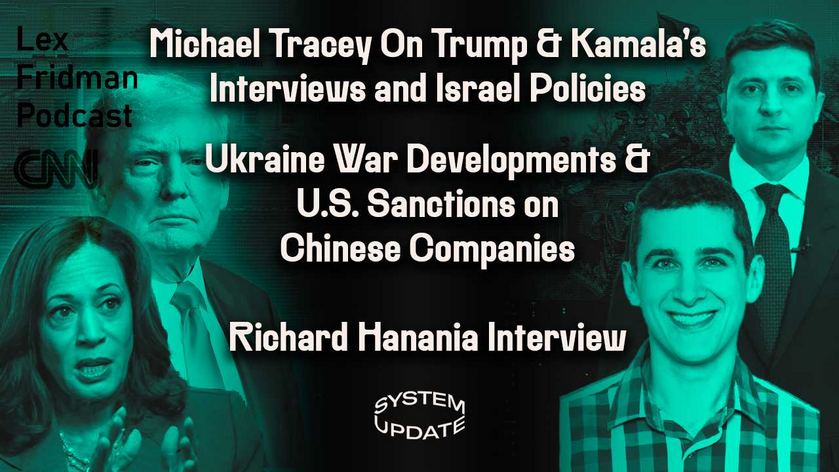Watch the full episode HERE
Hello. Welcome to another exciting edition of System Update here on Rumble, the free speech alternative to YouTube System Update. Glenn is once again away. So, tonight I'm going to do my best to serve you, because that's what I live to do. We are going to discuss a couple of items that I think are of public interest. Did I mention that I'm Michael Tracey? If not, you should be aware of me by now, I would hope. Although you might be better off just forgetting about me.
Tonight, we're going to first discuss some of the media appearances that our two glorious presidential nominees, Donald J. Trump and Kamala D. Harris – is that her middle initial? I think so – have graced us with.
Kamala Harris only provided her first interview of the entire campaign last week and Donald Trump has been gabbing it up a little bit more extensively. There are a couple of items there that I think you'll want to be apprised of.
Then, we're going to go through a couple of developments around Ukraine and discuss those developments with Richard Hanania, who is, I don't know what he is exactly. He's an all-purpose commentator polemicist – he might even say troll, but in an endearing way – and it should be enlightening and informative and that's it.
So. for now, welcome to a new episode of System Update, starting now.






















